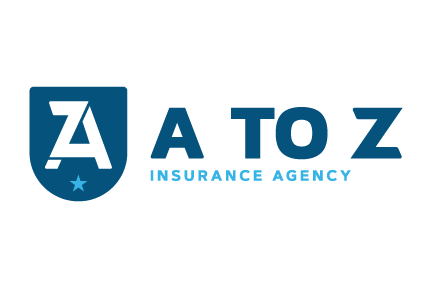Comprehensive Business Insurance for Ultimate Protection
Running a business comes with risks, and business insurance is designed to protect your company from financial loss due to unexpected events. From property damage to liability claims and employee injuries, having the right coverage ensures that your business remains secure even in the face of challenges.

What Is Business Insurance?
Business insurance is a collection of policies that cover different aspects of your company, including physical assets, employees, and legal liabilities. By having the right business insurance, you can protect your company from financial disruptions that could lead to bankruptcy or closure.

Types of Business Insurance Coverage
General Liability Insurance
General liability insurance covers your business in case of third-party claims for bodily injury, property damage, or personal injury (such as libel or slander). It’s essential coverage for almost any business, whether you’re working with customers directly or simply need protection from potential lawsuits.
- Best for: All businesses, especially those with customer interaction or physical premises.
- Advantages: Covers legal fees, medical expenses, and settlement costs.
- Disadvantages: Does not cover employee injuries or damage to your own business property.
Commercial Property Insurance
Commercial property insurance protects your business’s physical assets, including buildings, equipment, inventory, and furniture, from events like fire, theft, or natural disasters. Whether you own or lease your space, property insurance ensures that you can recover and rebuild after damage.
- Best for: Businesses with physical locations, equipment, or inventory.
- Advantages: Covers replacement or repair costs for damaged or destroyed assets.
- Disadvantages: Excludes coverage for natural disasters like floods or earthquakes unless specifically added.
Business Interruption Insurance
If your business is forced to shut down temporarily due to a covered event (such as fire or storm damage), business interruption insurance helps cover lost income and ongoing expenses like payroll and rent. This coverage ensures that you can keep your business afloat during downtime.
- Best for: Businesses at risk of losing income due to temporary closures.
- Advantages: Replaces lost revenue and helps cover fixed expenses during recovery.
- Disadvantages: Typically doesn’t cover damages due to pandemics or long-term closures.
Workers’ Compensation Insurance
Workers’ compensation insurance provides benefits to employees who are injured or become ill as a result of their job. It covers medical expenses, lost wages, and rehabilitation costs while protecting your business from employee lawsuits related to workplace injuries.
- Best for: Businesses with employees, regardless of size or industry.
- Advantages: Complies with legal requirements and protects both employees and employers.
- Disadvantages: Premiums may increase if your business has a high rate of workplace accidents.
Professional Liability Insurance (Errors and Omissions)
Professional liability insurance, also known as errors and omissions (E&O) insurance, protects your business if a client claims that your services or advice caused them financial harm. This type of coverage is essential for businesses that offer consulting, legal advice, financial services, or any professional expertise.
- Best for: Professionals like consultants, accountants, lawyers, and medical practitioners.
- Advantages: Covers legal costs, settlements, and damages from lawsuits.
- Disadvantages: Limited to claims related to professional services and advice, not physical injuries or property damage.
Cyber Liability Insurance
In today’s digital age, data breaches and cyberattacks are significant risks. Cyber liability insurance helps cover the costs associated with data breaches, including legal fees, customer notifications, credit monitoring, and reputational damage control.
- Best for: Businesses that handle sensitive customer information or rely heavily on technology.
- Advantages: Protects against the financial fallout from cyberattacks and data breaches.
- Disadvantages: Coverage varies widely, so it’s essential to understand the specific risks your business faces.

Key Considerations When Choosing Business Insurance
Industry-Specific Risks
Different industries face different risks. For example, construction companies may need additional liability coverage, while restaurants might require specific food safety or spoilage insurance. Tailor your business insurance to fit the specific risks of your industry.
Size of Business
The size of your business impacts your insurance needs. Small businesses may opt for a Business Owner’s Policy (BOP), which bundles general liability and property insurance at a lower cost. Larger companies may need separate, more comprehensive policies.
Legal Requirements
Some types of insurance, such as workers’ compensation and commercial auto insurance, are legally required in most states. Make sure you meet your state’s insurance requirements to avoid penalties and fines.
Level of Coverage
The level of coverage you need depends on the value of your business assets, your revenue, and your risk tolerance. A higher level of coverage can provide more protection but may come with higher premiums.

Benefits of Business Insurance
Financial Protection: Business insurance protects against financial losses due to property damage, liability claims, and legal fees.
Employee Protection: Workers’ compensation and other employee-related coverages help ensure your staff is protected in case of injury or illness.
Business Continuity: With the right coverage, your business can continue to operate even after a disaster or major claim.
Client and Customer Trust: Having business insurance can boost your credibility with clients and customers, showing that you’re prepared for the unexpected.

Common Business Insurance Myths
“Small Businesses Don’t Need Insurance”
Even small businesses face risks like lawsuits, property damage, and employee injuries. Business insurance protects you from financial disaster, no matter the size of your company.
“I Can Save Money by Not Getting Insurance”
While skipping insurance may save money upfront, the cost of a single lawsuit or accident could bankrupt your business. Insurance provides a safety net that outweighs the cost of premiums in the long run.
“Home-Based Businesses Don’t Need Insurance”
If you run a business from home, your homeowner’s insurance likely won’t cover business-related claims. Business insurance, including liability and property coverage, is still necessary to protect your operations.

How Much Business Insurance Do You Need?
The amount of business insurance you need depends on several factors, including the size of your business, your industry, and your risk exposure. Larger companies with more employees and higher revenue will typically require higher levels of coverage. A consultation with an insurance broker can help determine the appropriate amount of coverage for your specific business.


I’ve Got You Covered. Don’t Get Caught Off Guard
Everyone has different insurance needs. Lucky for you, we cover everything from A to Z. Call today for a personalized business or individual assessment and fine out how we can help protect your hard-won assets.
Put You & Your Family in Good Hands
Start Saving
Fill out the following form as completely as possible. Once you have completed the form, click the Submit button to send your information. Your request will be handled promptly.
